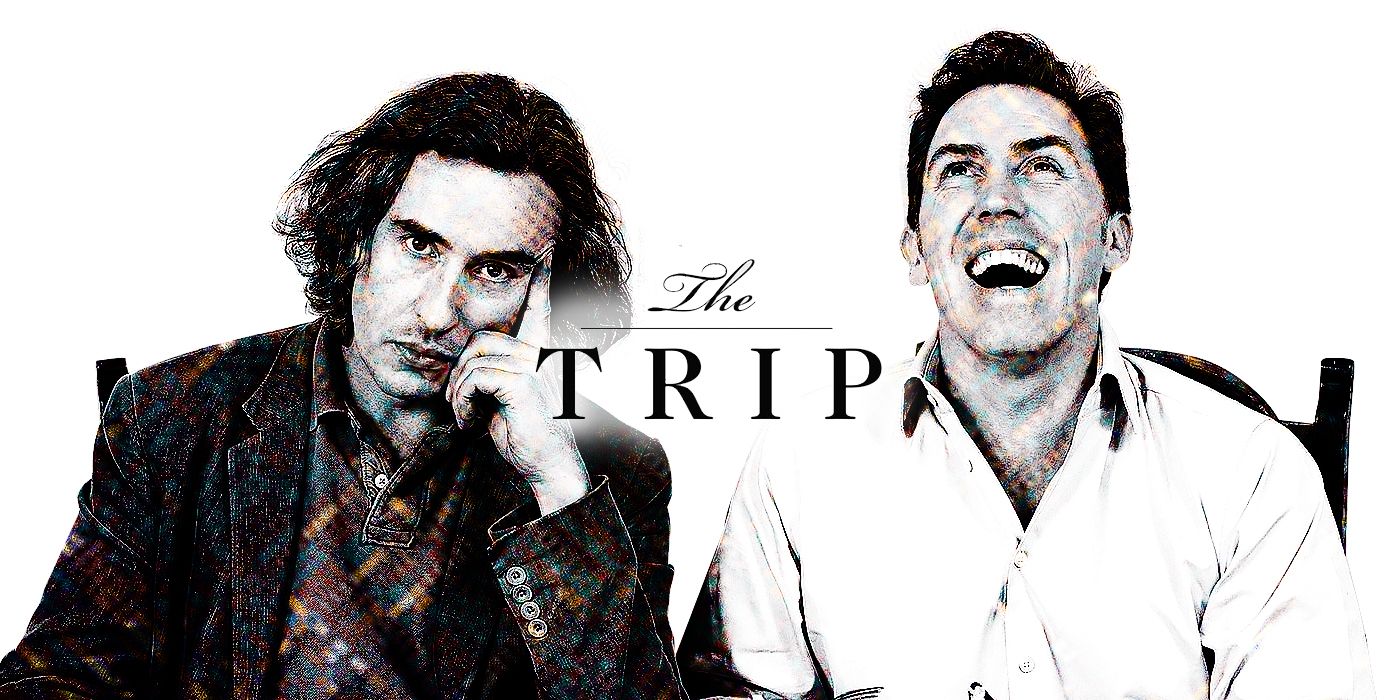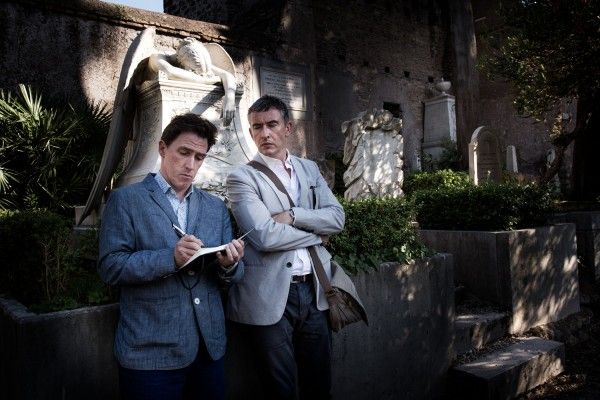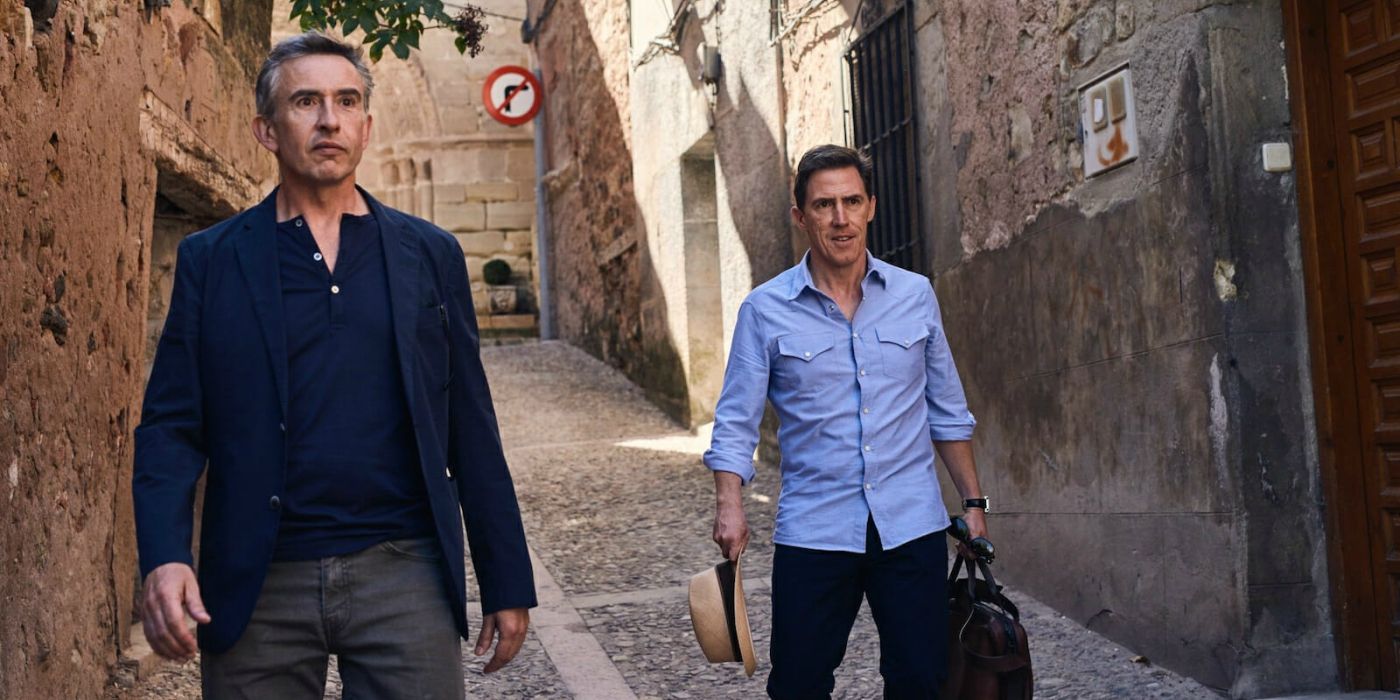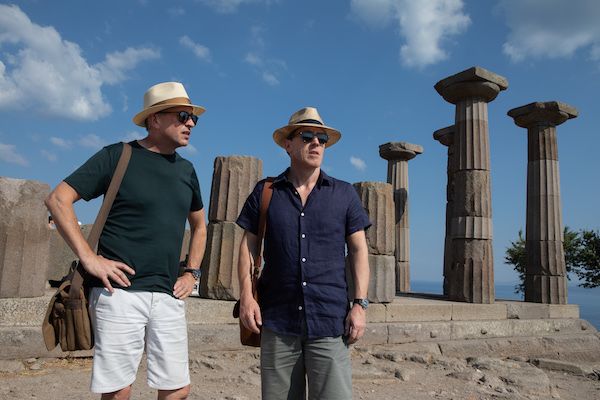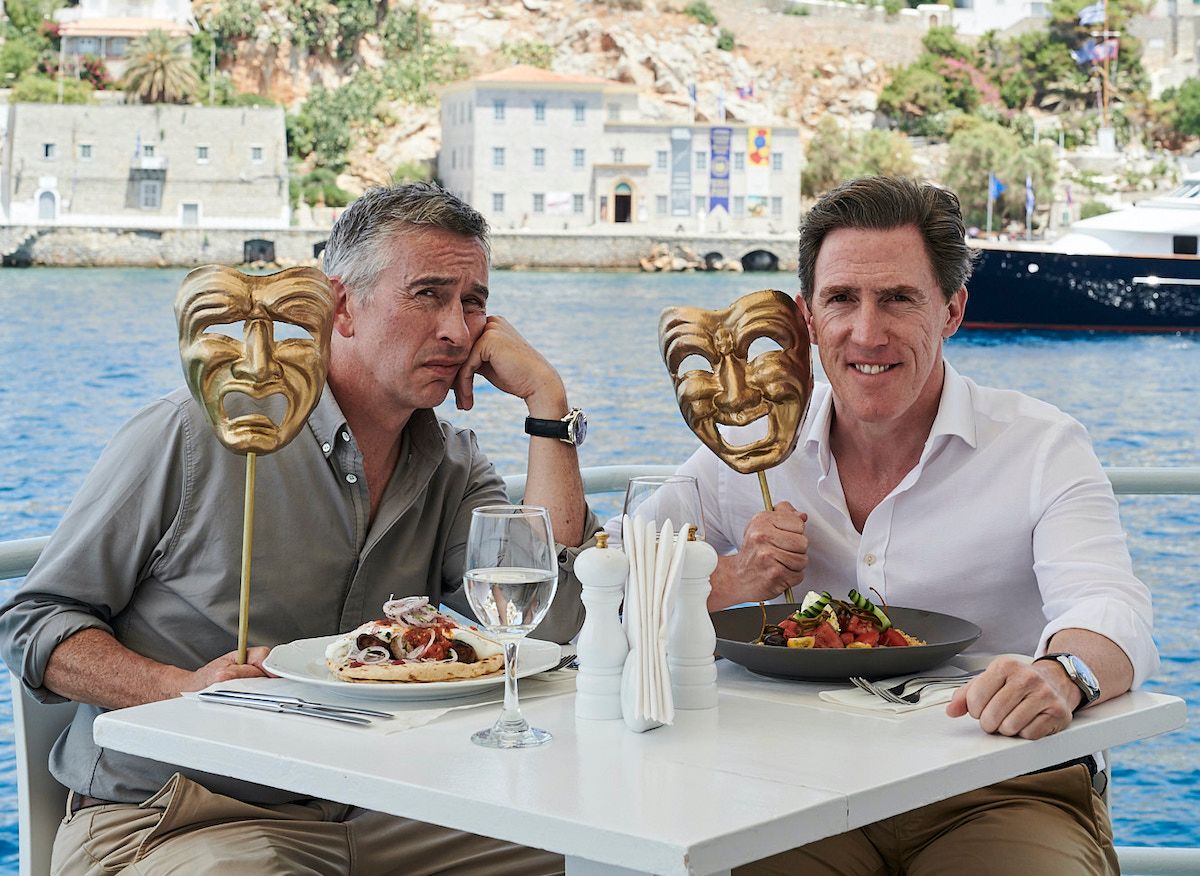There’s a reason why comedy sequels rarely work. Great comedy is often about landing a joke at the right time and refining material in the moment, and it’s rare that the situations and characters can be easily inserted into a follow up story. There’s a rather slim amount of comedy sequels that can even compare to their originals, and the number of comedy franchises with multiple good installments is even lower.
The notion of a comedy series with four great installments would seem nearly impossible, but that’s exactly what filmmaker Michael Winterbottom and stars Steve Coogan and Rob Brydon did with The Trip franchise. The films re-edit footage from the U.K. sitcom of the same name to form a cohesive narrative, resulting in four unique installments- 2010’s The Trip, 2014’s The Trip to Italy, 2017’s The Trip to Spain, and 2020’s The Trip to Greece.
Some comedy franchises mix genres in a way that suit them for continuing adventures - there’s an action element to the Austin Powers series and lots of sci-fi worldbuilding in the Bill & Ted films. The Trip couldn’t be more different; Coogan and Brydon star as (lightly) fictionalized versions of themselves, two lifelong friends and comedians who embark on a series of restaurant tours across landmark destinations in Europe.
While Winterbottom has made films with an intense visual style before (Code 46, 24 Hour Party People, The Claim), The Trip films are entirely based on the conversations between Coogan and Brydon. Obviously getting two established comedians to make funny observations on a road trip may not seem like a tough task, but the chemistry between the two leads goes beyond their competing Michael Caine impressions. Each film shows the passing of time and how the friendship has evolved, and the acerbic wit that each comedian brings prevents the films from ever being too cloyingly sentimental.
If the concept of “Richard Linklater's Before trilogy starring two middle-aged comedian friends” doesn’t sound initially appealing, Coogan and Brydon are savvy in what personal details are shared. Because the two are best friends, the viewer doesn’t need to be fed expositional dialogue about the major updates in their personal lives between films. You wouldn't fill your friend in on your entire backstory every time you see them, and enough context clues come up naturally in the films for the audience to feel sufficiently caught up. It’s intended for each film to be a snapshot into a specific moment in the two men's lives, with an occasionally lukewarm return to normalcy following each trip.
What makes The Trip such a great franchise is that it avoids the frequent issues of repetitiveness comedy sequels face through its authenticity. Sometimes a joke that worked the first time around just doesn’t work a second time - Brydon’s exaggerated Bond villain impersonation may have been hilarious in The Trip but feels stale by The Trip to Greece, and the characters can comment on that. The films don’t feel the need to manufacture conflict between the characters either, and any quarrel or disagreement comes up naturally. By the end of the fourth film, Coogan and Brydon haven’t broken down into any furious shouting matches, but it’s clear their lives are headed in different directions.
The docu-style approach also helps to avoid manufacturing jokes when they’re not appropriate - one of the more quietly profound moments in the series is Coogan’s growing irritation with Brydon’s quips when they encounter a preserved body at a historical site in The Trip to Greece. There’s enough inherent humor from the characters’ perspectives that adding in setpieces or exterior gags isn’t necessary, and there are moments where it’s best to hold back.
The lack of a conclusive chapter allows each film to naturally segue into another; the stories don’t end with Coogan and Brydon reaching a more profound understanding of each other because that’s just not how real-life friendship works, and each film ends in borderline experimental fashion. The Trip to Spain is the most notable in that regard, concluding with Coogan isolated and exhausted in the middle of a foreign country without any direction forward (literally or metaphorically). As high-strung as many of the conversations can get, the Trip franchise's depiction of mid-life anxiety remarkably pulls no punches.
The Trip also isn’t a franchise where one film stands out among the rest. Your favorite entry might depend on what stage of life you’re at and how much of the mature elements you’re comfortable with. The adolescent hijinks don’t disappear by the end of the series, but the films do confront more serious situations as they go on. When Coogan faces the impending loss of a parent in The Trip to Greece, it throws a wrench into the story that stops the film in its tracks and forces both men to reckon with their life choices.
The notion of getting to see these beautiful locations is also very appealing, especially considering most of us have been completely confined to our homes for the past year. As much fun as each mini-adventure is, Coogan and Brydon make it clear that the indulgences they allow themselves on vacation just aren’t sustainable when they return to their family lives. For instance, Coogan experiences a wake-up call when his son joins the series towards the end of The Trip to Italy, and he’s forced to dramatically alter his behavior and revert to being a parent.
This is a must watch franchise for film nerds, as beyond the amusing pop culture references is the incorporation of Coogan’s acting career as a point of conversation. The awards success of 2013’s Philomena (which Coogan starred in and co-wrote, earning Academy Award nominations for Best Picture and Best Adapted Screenplay) leads to a very funny discussion on the merits of awards communities. There’s also a vague notion that each of the stories follows some of the countries’ literary icons; The Trip to Spain contains allusions to the Don Quixote story, and The Trip to Greece features the characters following the trail of The Odyssey.
Winterbottom, Coogan, and Brydon have definitively stated that The Trip to Greece is the end of the franchise, making it one of the rare series to leave on a satisfying conclusion without any critical missteps forcing a conclusion. It’s a rare achievement, and one that only a select few sagas have ever been able to do. That its stories and setups are so simple shouldn’t change the fact that The Trip is a valuable franchise that finished on its own terms.

